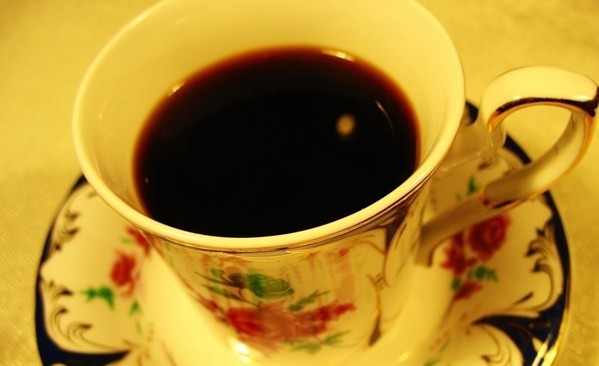El Salvador La Traviata Manor Coffee Features La Traviata Manor Coffee Types Introduction

For professional baristas, please follow the coffee workshop (Wechat official account cafe_style)
Coffee characteristics of Camellia Girl Manor in El Salvador introduction to the types of coffee in Camellia Lady Manor
APANECA-ILAMATEPEC MOUNTAIN RANGE
The reputation of the APANECA-ILAMATEPEC Mountains, with many competitions winning coffee, there is no doubt about the quality of the coffee. Despite the frequent volcanic activity here, the most recent eruption of Mount Santa Ana in 2005 has had a huge impact on its coffee production over the years. This is the largest producing area in El Salvador and may also be the first to grow coffee.
It has the taste of lemon and orange peel, and can obviously feel the mellow degree of coffee in the mouth. Like many beans in Central and South America, it has obvious cocoa flavor in the back. After swallowing it, you can obviously feel that kind of sweetness. I haven't gone for a long time.
Fragrance: sweet flower scent (jasmine, lavender, coffee blossom,) 4 Coffee 6
Sweet orange flavor (lemon orange orange) 1 Candle 6
Sweet berry (cherry, apricot, strawberry), almond, peanut, barley, corn, sugar
Dark chocolate, Swiss chocolate.
The Salvadoran mixed-race Pacamara boasted in coe, which confused many international cup testers and did not know how to score it. It was never expected that this hybrid bean not only broke the mellow boundary of coffee, but also expanded the visibility of Salvadoran coffee.
El Salvador boutique coffee is concentrated in the volcanic rock producing areas of Santa Ana in the west and Charantanan fruit in the northwest. The top 10 cup tests in recent years almost all come from these two producing areas, with an altitude of about 90-1500 meters above sea level, mainly bourbon (68%). Followed by Pacas (29%), mixed-race Pakamara, Dulaai and Kaddura accounted for only 3%.
The coffee harvest lasts from November to March. The fresh fruit of coffee is picked by hand. Coffee in El Salvador is grown mostly by small farmers, who grow it in the traditional way: almost 100% shade. The coffee harvest lasts from November to March. All the fresh coffee fruits are picked by hand.
On the whole, Salvadoran coffee inherits the mild quality of Sino-American coffee, which is soft, slightly sour and has beautiful sweetness. At the same time, it also has its own characteristics: the aromatic taste is slightly sour and very soft; it is pure and has no miscellaneous flavor, and the taste balance is excellent; the smooth feeling like cream chocolate is impressive; the dense feeling of coffee in the mouth gives the coffee a deep taste and a long finish.
It was first cultivated by researchers in El Salvador in 1958. Pacamara is an excellent variety under rare artificial breeding, which is better than blue, and perfectly inherits the advantages of the mother plant. Both the excellent taste of Pacas and the large size of Maragogipe are inherited by raw bean granules. The bean body is at least 70% and 80% of that of elephant beans, with more than 17 orders and more than 100% and more than 18 eyes. Average bean length 1.03 cm (general bean about 0.8-0.85 cm) average bean width 0.71 cm (general bean about 0.6-0.65), thickness 0.37 cm, bean shape plump and round. The biggest feature of this variety is that it is sour, lively and tricky, sometimes biscuit, sometimes fruity, thick and greasy. The quality is the best from El Salvador and Guatemala.
Salvadoran coffee ranks side by side with Mexico and Guatemala as producers of Asa and Merdo, and is fighting for the top one or two places in China and the United States with other countries. The highlands of origin are large coffee beans of all sizes, which are fragrant and mild in taste.
The wet aroma has obvious floral aroma, soft acidity and a feeling similar to the summer plum soup after the entrance.
El Salvador El Salvador
Population: 6134000
For most coffee roasters, Salvadoran coffee does not use the name of the less important producing area to describe coffee. Although they are different and well-defined areas, some would say that El Salvador itself is so small that it can be classified as a single area, enough to clearly define the coffee in the area.
Important Notice :
前街咖啡 FrontStreet Coffee has moved to new addredd:
FrontStreet Coffee Address: 315,Donghua East Road,GuangZhou
Tel:020 38364473
- Prev

Coffee production area of Camellia Girl Manor in El Salvador what is the elevation of coffee beans in Camellia Girl Manor
Professional baristas exchange please follow the coffee workshop (Wechat official account cafe_style) El Camellia Lady Manor Coffee production area introduction Camellia Lady Manor Coffee beans altitude how much Salvadoran mixed-race varieties Pacamara show off in coe, let many international cup surveyors confused, do not know how to score it, never expected that this hybrid bean not only broke the existing coffee mellow
- Next

El Salvador Camellia Lady Manor Coffee Bean Flavor description of how to drink Camellia Girl Manor Coffee
For the exchange of professional baristas, please follow the coffee workshop (Wechat official account cafe_style) El Camellia Girl Manor coffee bean flavor description how to drink Salvadoran coffee along with Mexico, Guatemala as the producer of Asa and Merdo, and is fighting with other countries for the first or second place in China and the United States. The highland of origin is a large one of equal size.
Related
- Does Rose Summer choose Blue, Green or Red? Detailed explanation of Rose Summer Coffee plots and Classification in Panamanian Jade Manor
- What is the difference between the origin, producing area, processing plant, cooperative and manor of coffee beans?
- How fine does the espresso powder fit? how to grind the espresso?
- Sca coffee roasting degree color card coffee roasting degree 8 roasting color values what do you mean?
- The practice of lattes: how to make lattes at home
- Introduction to Indonesian Fine Coffee beans-- Java Coffee producing area of Indonesian Arabica Coffee
- How much will the flavor of light and medium roasted rose summer be expressed? What baking level is rose summer suitable for?
- Introduction to the characteristics of washing, sun-drying or wet-planing coffee commonly used in Mantenin, Indonesia
- Price characteristics of Arabica Coffee Bean Starbucks introduction to Manning Coffee Bean Taste producing area Variety Manor
- What is the authentic Yega flavor? What are the flavor characteristics of the really excellent Yejasuffi coffee beans?

